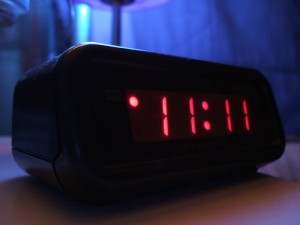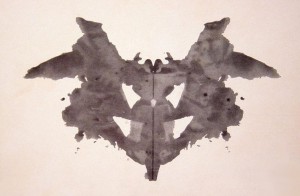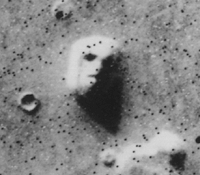 Why do we assign so much importance to coincidences? Let me paint a picture for you…
Why do we assign so much importance to coincidences? Let me paint a picture for you…
It’s been a busy day so far, you’ve been working hard all morning, completing tasks, planning, sorting, creating, and all this time you’ve really been so focused on your work that you have hardly noticed the passage of time since you started. But in a sudden moment of clarity, you glance at the clock and wouldn’t you know it, the digital readout says 11:11!
You think to yourself ‘Hey! That’s cool!’ and then you remember…the same thing happened last Tuesday. Does this mean something? Was I supposed to notice this?
That’s an experience many people have had, and you can substitute pretty much any time of day, perhaps 3:33, or even swap in the hand positions on an analog clock. What makes it significant though?
Does it have an inherent meaning, or are we assigning that meaning out of some psychological need to find order in our world? I lean toward the latter, but I think it has more to do with perspective than anything else.
Think about this scenario.
You work hard and save up your pennies, and after an unreasonably long time saving, you finally have enough for a down payment on a brand new car! You choose the car you want for various reasons; it looks nice to you, you like the brand, it gets good mileage, maybe it’s even a status symbol of sorts. But whatever caused you to buy it, it’s yours. It’s uniquely you, and you’re proud to be seen driving around town in it. And then you notice something…these cars are everywhere! It seems like everyone has one; same colour, same model…same car! Suddenly your personal statement of individuality doesn’t seem so unique.

A standard Rorschach inkblot card
Why did everyone, including your neighbour three doors down – who you could have sworn drove an old jalopy last week – go out and buy the same damn car as you? Well, my friend…they didn’t.
It might be easier to see what’s happening in that second scenario than in the first, but I assure it, it’s precisely the same mechanism at work.
Our brains are amazing organs. They might just be the most complex structure in the universe (though this isn’t limited to our brains, it applies to all brains), and they work exceedingly well considering all that complexity. Though they aren’t perfect. There are a lot of things that can go wrong in a brain, and of the many, many ways they can misbehave, there are even more ways that such misbehaviour can manifest in the creature that owns it. But let me make perfectly clear; the mechanism that causes us to see significance in random and even mundane events is not an imperfection. In fact, we couldn’t live without it.
Patterns. That’s the root of all coincidence. Our brains have evolved to be very good at one particular thing, a thing that allows us to comprehend the reality in which we live; we are experts at recognising patterns.

The Martian Face is a famous example of pareidolia
Pattern recognition is often thought of in terms of visual stimulus. There are many fun so-called brain teasers that challenge our perceptions through pictures that offer not-so-easily recognised patterns. But the habit of sorting elements of our reality is an inherent process that is fundamental to the act of navigating life. We do it with all of our senses, however many there may be, and that ability is tied in a very fundamental way to the fabric of space-time, believe it or not. It is the very foundation of cognition, it is what we use to recognise the difference between people, things, sounds, feelings…everything.
Here’s the thing though, we’re so good at recognising patterns that we perceive them where they don’t actually exist. That’s called false pattern recognition, or more commonly, apophenia. That word has a simple meaning, a multifaceted meaning actually, but still simple. We see patterns where none exist.
Apophenia – a term coined by German neurologist and psychiatrist (and Nazi), Klaus Conrad, in his principle work Die beginnende Schizophrenie. Versuch einer Gestaltanalyse des Wahns (1958) – manifests in several ways, whether seeing faces or shapes (often anthropomorphic shapes) in amorphous media, such as the man in the moon, or shapes in clouds, or, as has recently become quite popular, figures in the mist of ghost photography. This, specifically, is called pareidolia, which is a form of apophenia that specifically relates to sensory stimulus, i.e. sights and sounds.
Pareidolia is responsible for the vast majority of paranormal type experiences in the realm of ghosts and hauntings, despite what some may prefer to believe. As mentioned, so-called ghost photography is predominantly the result of persons looking at images that often don’t make sense visually. There are typically photographic anomalies present in the image(s) that, when studied, begin to take form, often that of a face or apparition, but when viewed impartially or independent of context, those forms are conspicuously absent. Electronic Voice Phenomenon, or EVP, is another popular example of pareidolia, but as with other forms of sensory apophenia, pareidolia doesn’t act alone.

Other common psychological mechanisms join with apophenia to solidify our incorrect perceptions. Confirmation bias is one, which is the tendency we have to seek out and accept information that serves to confirm our already held beliefs, and also to reject information that in any way denies our beliefs or our perception of experience. Confirmation bias also works on the suggestion of what should be seen/heard in the presented media. When someone shows you a picture or plays an audio recording, and they tell you what it is you should be seeing/hearing, your brain will try to fulfill that expectation.
These aren’t the only ways apophenia affects our perceptions though. As good as we are at detecting patterns, there are a few things we’re really quite bad at, on the whole. We, as a general rule, suck at statistical analysis. That isn’t to say that we don’t have the mental apparatus to perform the task, or that some people don’t have a better grasp on it than others, but when it comes to judging the significance of an event statistically (without doing the math outright), we will almost always err on the side of greater importance than not.
There’s a very simple reason for that too. It’s far less costly to designate an event or occurrence significant and be wrong, that to deem it insignificant and be wrong. At least, that was the case for our ancestors on the plains of Africa 50,000 years ago. In today’s world, however, we have different concerns than did our ancestors. This, in fact, is precisely why recreational gambling even exists. All who endeavour to win their fortune in the lottery or in casinos, drastically misjudges the odds of their winning against the house. Gaming houses of all kinds are capitalising on your inherent inability to accurately understand the significance of various events during game play, to their great profit, I might add.
Your brain, it seems, is not to be trusted. Its friends, your eyes and ears, aren’t exactly beacons of truth either. When you combine the effects of apophenia with mechanisms like confirmation bias and the inherent flaws in our sensory equipment (the retinal blind spot for instance), it’s a wonder we can make any sense of our surroundings at all. Of course, all of those apparent failings are in fact the very reason we can make sense of our surroundings.
If we didn’t have the power to see faces where they don’t exist, we might be prone to miss them where they do exist, and where they could be integral to our survival. All of these aspects of our greater mind, which may seem fatally flawed, are in fact perfectly adapted to ensure our survival in this world. The problem is, our world has changed, is changing, at a pace far in excess of our ability to adapt. What worked for us 200 years ago, isn’t necessarily going to work in another 200 years, unless we begin to take control, and realise our failings, perhaps with the goal of using them to our advantage.
